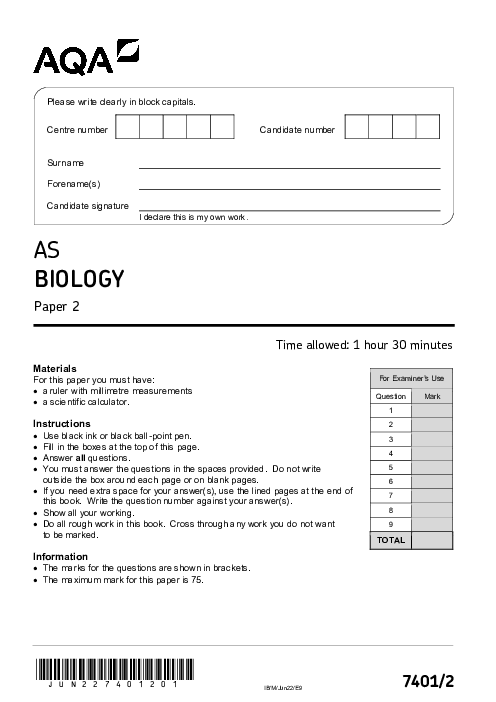Biology 7401/2 June 2022
omer uner
The exam emphasizes biological concepts including transcription, translation, and meiosis, highlighting DNA and mRNA structural differences, ATP′s role in protein synthesis, and genetic variation mechanisms. Practical applications include Benedict’s test for reducing sugars, monoclonal antibodies, and phylogenetic relationships through DNA base sequences. Physiological processes such as insect gas exchange, human respiration, and cardiac function are explored. Experimental investigations cover effects of environmental factors on transpiration, guppy breeding behaviors, and selective pressures. Analytical skills are tested through quantitative problems involving surface area ratios, haploid cell formation, and blood pressure impacts on cardiovascular health.
See More Paper 2 a year ago
Biology (7401) Subject directory
All resources in one place
Related Past Papers
Related Tutorials
Crash report
